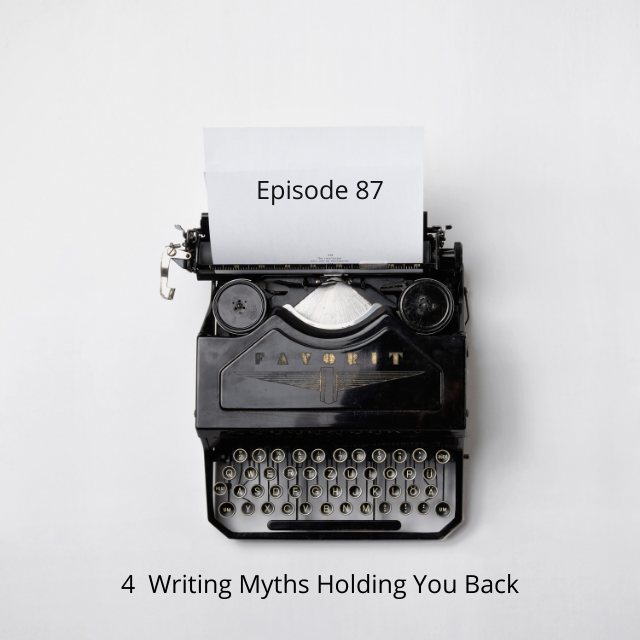There’s no shortage of writing advice. Conflicting advice, canned advice, bad advice. Writers hear the same advice so often, a lot of them have come to regard them as the right way to craft a story.
But these are often half -baked ideas that are only keeping you from moving forward. They’re taking you in the totally wrong direction. They’re myths. Myths about plot and structure. Myths about how to create drama. And what it means to write beautiful sentences.
Myths holding you back. Because it’s either the wrong approach, or just doesn’t go deep enough.
In this episode I’m debunking 4 common myths about story writing, and I’ll give you different approaches you can bring straight to your pages.
Download as an MP3 by right-clicking here and choosing “save as.”
Episode at a glance:
[2:25] Myth 1: The Story Is About What Happens
Contrary to what many writers believe, a story is not about what happens. Learn what a story is, what it’s about, and the difference between plot and story.
[7:56] Myth 2: More Obstacles Create More Drama
Often the reason stories lack drama, despite obstacles thrown in the protagonist’s path, is a reliance on common structures like the Hero’s Journey, Save the Cat, and other structures. These perpetuate this idea that you should have external events in place before you sit down to write. So they have you hitting certain story beats all before you know who you’re writing about. Learn how to create real drama as opposed to manufactured drama.
[11:36] Myth 3: Great Writing Equals Great Storytelling
Nope. The misconception here is that if you learn to write well, the story will naturally appear. But that is not what makes a story. The words themselves may be gorgeous, but they’re ornamental. On the surface. They don’t transmit emotion. They often describe poorly. And they do nothing for the story. Learn what skills you need to hone in order to be a great storyteller.
[15:48] Myth 4: Write About What You Know
We can’t help but write about what we know. But the problem with writing what we know is that it limits us. It presents too much material. Too many details. Too many situations and characters, etc. We can’t seem to see beyond the literal truth, and we lose sight of the story we set out to tell. It shuts off possibilities. There’s also this misconception that just because it’s based on something true, the story will automatically be interesting or believable. And that’s just not true. Learn the secret to using what you know to create a believable, fascinating story.

